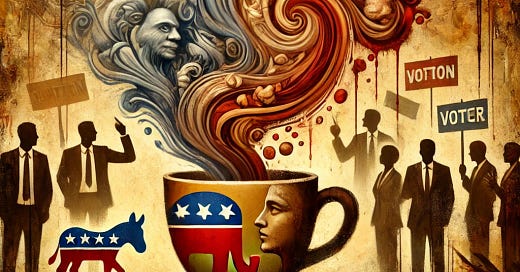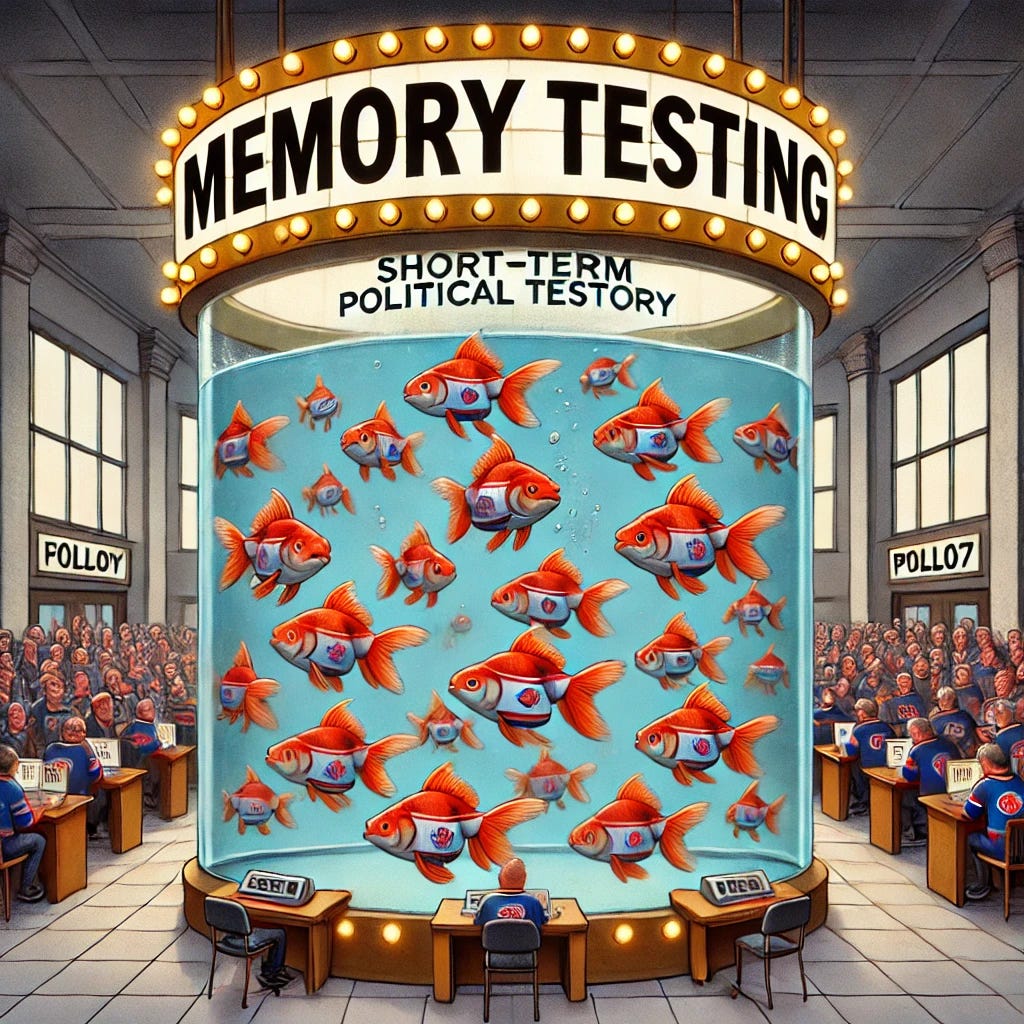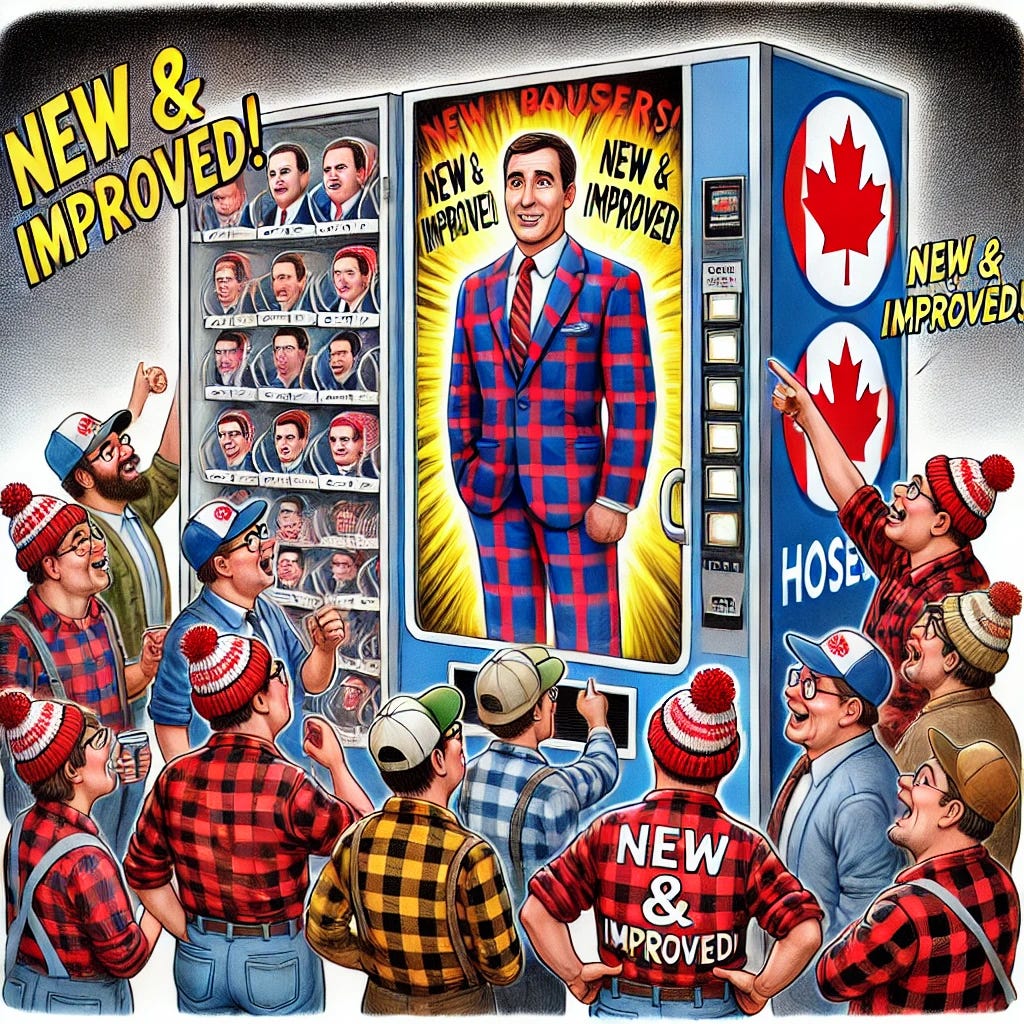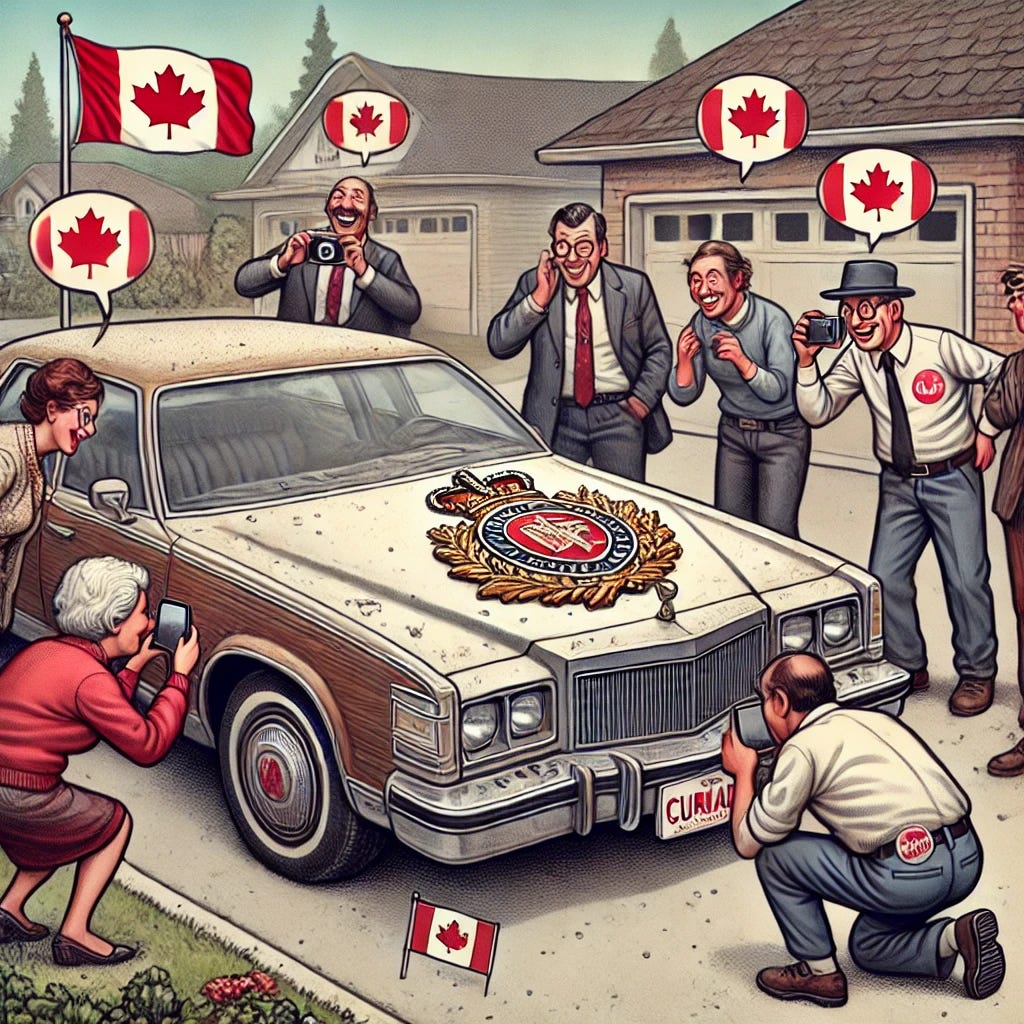If you believe in the importance of free speech, subscribe to support uncensored, fearless writing—the more people who pay, the more time I can devote to this. Free speech matters. I am a university professor suspended because of a free speech issue, so I am not speaking from the bleachers. The button below takes you to that story.
Please subscribe to receive at least three pieces /essays per week with open comments. It’s $6 per month, less than USD 4. Everyone says, "Hey, it’s just a cup of coffee," but please choose my coffee when you come to the Substack counter. Cheers.
The Danger of Doing the Right Thing
Let’s start with a brutal truth: the idea that good governance and electoral success go hand in hand is a fairy tale for suckers.
Politicians aren’t rewarded for wise decisions or long-term thinking—they’re rewarded for selling a vibe, a brand, a shiny bauble that makes voters feel briefly smug before they forget about it entirely.
The notion that doing the right thing—crafting smart policy and managing relationships with powerful neighbours like grown-ups—will win you votes is a delusion, so naive it deserves its own CBC documentary narrated by Peter Mansbridge.
It’s not cynical, nor is it is not optimistic to believe in something that doesn’t exist; it’s idiocy, and politicians who campaign on short-term pain for long-term gain campaigns are about as popular as the “Mall Santa is just an unemployed guy who is at a low point in life” seminar at the ‘Dinkytown Fun Fair for Five-Year-Olds.’
In Canada, we’ve perfected the art of doing the wrong thing because it polls well, and our voters, bless their hockey-obsessed hearts, lap it up like it’s free poutine at a Leafs game.
Take Mark Carney, the economic golden boy turned political tease, strutting around like Justin Trudeau 2.0. He’s out there, looking busy, and he already has the white saviour walk down, so he’s doing well. What’s his big play? A cage match with Melissa Lantsman? Melissa is tough, she’d win.
Trolling Donald Trump.
Because nothing screams “statesman” like poking a thin-skinned, vindictive bear who happens to control the world’s largest economy—our next-door neighbour, no less; Trump’s the guy who’d slap a 25% tariff on our maple syrup just because someone forgot to kiss his ring at a G7 photo op.
When Trump was nine years old, he probably never finished a board game without tipping it over and running out of the room crying, looking for more bronzer and telling everyone how smart he was and that 46% on the math quiz was future Obama’s fault.
Trudeau already proved this: remember him smirking at Trump during world summits, tossing out quips about sexism after Trump’s election? Hilarious, sure—if you’re a Canadian voter who gets a dopamine hit from our patented “we’re not American” superiority complex. But wise? No.
Trump’s a man who’d nuke trade deals over a bruised ego, and yet our leaders keep playing this game because it’s a polling winner. “C’mon, you guys, we’re the cool kids who stand up to the bully!” Cue the applause from an electorate that thinks moral posturing is a substitute for a functioning economy.
Canadian voters are swooning over Mark Carney because he strutted in a fancy suit around England. Look at him; he is holding a hockey stick.
I’m voting for him; he lived in England!
Never mind that the Brits largely see him as a pompous flop, a textbook Peter Principle case: rising to incompetence as Bank of England governor, flailing through Brexit with wild-eyed climate rants.
His book Values? A treasure trove of radical lunacy—pushing for a technocratic utopia where finance bows to net-zero fantasies, fossil fuels are strangled, and "society" (read: elitists like him) dictates all. Canadians cheer his accent and tie, blind to the mess he left across the pond. Brilliant! It would probably work if he adopted a fake Irish accent halfway through the campaign.
I went to university in Minnesota, and one kid from Saskatchewan faked a British accent all four years and got away with it. I’m not looking down on him; he did better with girls than me.
I called him out and told him his accent was contrived. He asked what contrived meant. I left it alone, everyone was drunk but you’d think one person knew what contrived meant. But over-estimating the lexicon of loaded Minnesota partiers is about as bright as expecting too much from Canadian voters.
The Voter: A Marketing Victim, Not a Policy Analyst
Let’s be real: voters aren’t sitting around dissecting white papers or crunching opportunity costs. They’re not policy analysts—they’re brand consumers, easily duped by a good slogan and a sad violin soundtrack. As H.L. Mencken once sneered, “The whole aim of practical politics is to keep the populace alarmed (and hence clamorous to be led to safety) by menacing it with an endless series of hobgoblins, all of them imaginary.”
In Canada, we’ve got our hobgoblins—evil Americans, climate Armageddon, the horror of not having a government plan for everything—and our politicians are maestros at exploiting them. The advantage always goes to the party that says, “Don’t worry, the government’s got this!” Never mind if “this” actually works. We’ve got cultural ADD; we announce the big fix, cut the ribbon, and forget to check if it panned out.
Exhibit A: the $40 billion splurge on battery plants for electric vehicles. In 2022, Trudeau’s Liberals strutted out this beauty—billions in subsidies to “create jobs” and “fight climate change.” The press releases were orgasmic: thousands of jobs! A green future! Voters ate it up because “jobs are good, right?”
Except, whoops—fast forward to 2025, and the EV market’s softening, global competition’s eating our lunch, and those plants? They’re either delayed or sucking up more cash than a Toronto condo developer. Empirical research backs this up: a 2023 study from the Fraser Institute pegged the cost per job at over $300,000 in some subsidised projects, while unsubsidised firms lost workers to these government trough dives. Net job creation? Zero.
It’s not a new job—it’s a displaced one, with taxpayers footing the bill for a $100,000 gig that costs three times that. But at announcement time, it was a political slam dunk. Voters don’t Chat GPT opportunity costs or debt’s long-term sting—they see “jobs” and cheer like it’s a hat trick in overtime.
The Childcare Con: Sad Kids, Big Promises, Bigger Mess
Or how about the $10-a-day childcare plan? Cue the ads: sad kids in black-and-white, a single mom wiping a tear, Trudeau promising to “take care of our kids.” Who’d say no to that? It’s electoral gold—until you look at the wreckage.
Rolled out in 2021, this grand scheme aimed to slash daycare costs and boost spots. Reality check: by 2024, waitlists were longer, fees in unregulated sectors spiked, and small providers got crushed by red tape and funding gaps. A 2024 report from the Canadian Centre for Policy Alternatives (hardly a right-wing rag) noted a 15% drop in private daycare capacity in some provinces, with rural areas hit hardest.
Parents are scrambling, but do voters care? Nah. The Liberals sold the idea—of government as saviour—and that’s what stuck—measuring results? That’s for nerds. Mark Twain said, “Facts are stubborn, but statistics are more pliable.” Our leaders know the game: promise big, deliver meh, and trust the voter’s gnat-sized attention span to forget the mess.
Poking the Bear: A Canadian Tradition
Back to Trump. Our obsession with needling the U.S. isn’t new—it’s baked into our identity. Pierre Trudeau once snarked, “Living next to you is in some ways like sleeping with an elephant. No matter how friendly and even-tempered the beast is, one is affected by every twitch and grunt.” Fair, but Pierre didn’t have to deal with a Twitter-happy elephant who’d torch NAFTA over a perceived slight.
Today’s Liberals keep up the tradition, banking on the electoral boost from “standing up to America.” Research from Elections Canada’s 2023 Wave 2 survey shows why this works: 75% of habitual voters (the ones who show up) are “interested in politics,” but they’re also suckers for narratives of Canadian pluck.
They don’t care that the U.S. economy’s humming along at a pace that’ll make their per-capita income double ours by 2050. Nope, we’ve got our healthcare—ranked bottom-quartile for outcomes, top-quartile for cost—and that’s enough to keep the smugness flowing. We’re the kid with a junkyard Toyota Corolla sporting a superglued BMW badge, bragging about our “luxury ride.”
The Brand Beats the Outcome Every Time
This is the core danger: when winning elections hinges on marketing, not results, democracy’s screwed. It’s less about helping the public and more about conning them. Look at pharmacare, the latest Liberal shiny object. Announced in 2024, it’s all soaring rhetoric—free drugs for all!—and zero details on how to pay for it.
Voters swoon because “free stuff” sounds great, but they’re like 10-year-olds swiping Mom’s credit card and buying up half of Amazon’s stock.
Big numbers? Debt? Future taxes? That’s abstract noise to a populace that can’t relate to a billion dollars but loses its mind over a $5 Tim Hortons gift card.
Okay, so did I.
A 2022 study from the Canadian Journal of Political Science found that voters prioritise “perceived intent” over outcomes—promise to “fix” something, and you’re golden, even if it flops.
Contrast that with, say, Stephen Harper’s tenure. Dry as toast, he balanced budgets and kept Trump’s predecessors happy. Result? Booted in 2015 for Trudeau’s selfie-ready charisma.
Doing the right thing—fiscal restraint, diplomatic prudence—doesn’t sell. Flashy failures do. As P.T. Barnum said, “There’s a sucker born every minute,” and Canadian voters prove it every election cycle.
The Long-Term Misalignment
Here’s the kicker: this isn’t just funny—it’s a slow-motion train wreck. When government becomes a marketing game, the incentives flip. Short-term wins—polling bumps from battery plants, childcare promises, or Trump-baiting—trump long-term good. Debt piles up, trade relations sour, and healthcare limps, but who cares?
Not the voter who’s forgotten last week’s headlines. A 2021 Elections Canada study found infrequent voters (the least engaged) were 46% more likely to buy into conspiracy theories than habitual ones, suggesting the disengaged are ripe for manipulation. Mix that with our love for big-government fixes, and you’ve got a recipe for permanent misalignment: what’s good for the party today screws the public tomorrow.
The Fix? Good Luck With That
So, what’s the solution? Don’t hold your breath. Voters need to morph into policy wonks overnight, and politicians must ditch ad campaigns for honesty—fat chance.
We’re stuck in a feedback loop where the danger of doing the right thing—being judged by results, not optics—keeps us chasing the wrong things. Democracy’s not dead, but it’s got a bad case of marketing poisoning.
As George Carlin said, “Never underestimate the power of stupid people in large groups.” In Canada, we’ve turned that into an electoral strategy. God help us.










